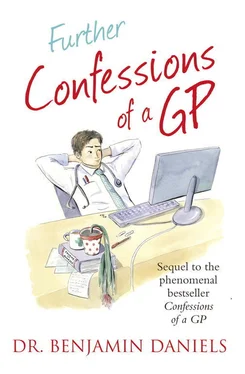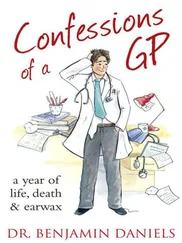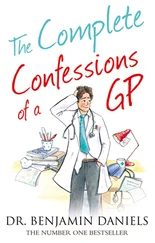1 ...7 8 9 11 12 13 ...41 The national newspapers today are full of reports on the worrying increase in resistance to antibiotics and the potential return to an era when we have no discernible medical treatment to use against severe bacterial infections. The following is how antibiotic resistance was explained to me at medical school. I’m not sure who first came up with the comparison, but the concept can be best explained by thinking in terms of straightforward evolution:
A farmer has a problem with rabbits (think bacteria) eating crops on his field. He employs a few hunting dogs (think antibiotics) to kill the rabbits. Initially it is a great success and the rabbits are almost all gone. The farmer’s crops are growing healthily and the farmer celebrates, assuming that rabbits will never be a problem again. He declares a great victory (think the remarks in the 1940s by doctors who thought that the days of infectious diseases were over). However, not all the rabbits are killed. Like all groups of organisms, there is variety. The few rabbits still alive are the ones that are the fastest and have the best hearing. These rabbits can hear the dogs coming and outrun them. These remaining ‘super rabbits’ breed with each other (like rabbits) and soon all the rabbits on the farm are extra fast and have great hearing. The old hunting dogs can’t kill any of them, so effectively the rabbits have ‘developed resistance’.
The farmer decides to get some new dogs, which are even faster and can hunt very quietly (think newer antibiotics). Initially the new dogs are killing the rabbits despite their speed and good hearing; however, one or two of the rabbits are brown rather than white and the dogs can’t see them very well. These remaining brown rabbits breed with each other and soon all the rabbits are brown and the dogs can’t see them (think super-infections such as MRSA and C. diff). This cycle continues, with the farmer continually trying to adapt his dogs to keep his farm healthy. The rabbits aren’t being cunning or clever. They are simply evolving and reacting to the environment which is being manipulated by the farmer.
The other issue the farmer notices is that the dogs cause other problems. They occasionally kill some of his hens (think unwanted side effects). He also finds that when his dogs have killed lots of the rabbits, there is suddenly more food and space for the mice, so they now flourish. The mice now become pests themselves (think fungal infection such as thrush).
Sometimes the farmer sees that his crops are being eaten and assumes it is the rabbits. In fact, this time it is a caterpillar infestation (think viruses) eating his crops for which the dogs are of absolutely no help. He foolishly sends out his dogs again even though the rabbits aren’t the culprits. The farmer has given himself all the problems that the dogs cause without any of the advantages. This is what happens when we give antibiotics for viral infections such as colds. We cause resistance and inflict side effects without helping clear the infection. After the farmer sends the dogs out, the caterpillars turn into butterflies and fly away leaving the crops to recover. This recovery had nothing to do with the dogs, but foolishly the farmer just sees his crops recuperating and assumes that his dogs are the saviours. He sends out his dogs every time the caterpillars arrive not realising that they are causing more harm than good to a problem that is self-resolving.
The other issue is that the rabbits can now spread directly to the neighbour’s farm. When they do so, the neighbouring farmer brings in his old dogs, but the rabbits are already superfast, have excellent hearing and outstanding camouflage. His dogs have no hope and soon the rabbits have overrun his farm and all the neighbouring farms. The good old rabbits from a few years ago don’t even exist any more and so all the farmers have to try to find new, special expensive dogs to try to deal with any sort of rabbit infestation. Eventually the farmers concede defeat, realising that they won’t ever be able to keep up with the rabbits’ constant adaptation.
This is the losing battle that the medical profession is fighting every day. There is no long-term solution. Pharmaceutical reps travel the nation promoting their companies’ latest erectile stimulant or antidepressant but they never try to sell us their new antibiotic because the drug companies have stopped making them. There hasn’t been a new one for a decade or so. Pharmaceutical compan-ies don’t want to invest money into developing new antibiotics because they know that there will be resistance too quickly for them to be of any real selling value. When I first qualified just a few years ago, ciprofloxacin used to be a special antibiotic that was still considered to work against all bugs. It was akin to the best china that would only be brought out on special occasions so that it wasn’t ruined. It was expensive and there was a real push to use it as little as possible so that bugs didn’t develop resistance to it. I seem to remember that in the hospital I worked in you had to be a consultant to prescribe it. Ciprofloxacin is still a good antibiotic, but it is as cheap as chips now and is prescribed quite readily by GPs and junior hospital doctors. I regularly see urine infections that are resistant to ciprofloxacin and there isn’t really an alternative. The best china is faded and chipped now and there isn’t likely to be any great investment in a new set.
In hindsight it could be considered immensely arrogant of the human race to think that we could control bacteria and eliminate them from harming us. Bacteria are the oldest living organisms on earth, having been around for billions of years. They have adapted through a multitude of changing environments from hot and cold to dry and wet. Their ability to mutate and adapt means that they have outlasted many millions of plant and animal species that could not keep up with the changing environment. In the 1940s, when antibiotics arrived, bacteria were probably sitting around thinking: ‘Hey boys, these antibiotics are a pain in the arse, but if we mutated through that Ice Age of 10,000 BCE and the great volcano season of 1 million BCE, this is nothing.’ I’m sure bacteria will adapt to survive many more changes and challenges and will still be around many millions of years after the human race has disappeared.
Doctors now talk about preparing for a post-antibiotic era. This will be when all the common bacteria are resistant to all antibiotics and we will simply have to rely on our immune systems again. For those among us who are fit and healthy adults this will probably be okay. However, for the elderly or very young, or those who have weakened immune systems for whatever reason, this will be disastrous. Infectious diseases could once again become our most common cause of death, taking over from cancer and heart disease.
To be fair, simple antibiotics do still work against many simple infections. We still are within the ‘antibiotic era’ and some good old-fashioned penicillin should still treat a good old-fashioned bout of bacterial tonsillitis. (When the GP says please finish your course of antibiotics, please don’t stop after two days because you’re feeling a bit better. This is how the resistance gets a hold.) Things are getting better. Patients increasingly understand the limitations of antibiotics and most GPs try to avoid prescribing antibiotics unnecessarily. Although we probably still prescribe vastly more antibiotics than are strictly necessary, some reports have suggested that GP antibiotic prescribing rates are down 50 per cent in the last decade. Well done us! Our slightly more frugal antibiotic prescribing does seem to have helped stem resistance rates.
If you catch a bacterial infection in Portugal, the chance of the bug being resistant to antibiotics is much higher than if you picked up the same type of bug here in the UK. This is almost certainly because in much of southern Europe, antibiotics can be bought over the counter without a prescription. In countries where this is the case there is a strong culture of popping to the local chemist and buying a couple of days’ worth of antibiotics if you’re feeling a bit peaky, no matter what the cause. This has led to antibiotic resistance flourishing. Other common offenders are those elements of the farming industry who often blanket treat their cattle with antibiotics in an attempt to ward off disease and keep their profit margins up.
Читать дальше
Конец ознакомительного отрывка
Купить книгу











![Benjamin Franklin - Memoirs of Benjamin Franklin; Written by Himself. [Vol. 2 of 2]](/books/747975/benjamin-franklin-memoirs-of-benjamin-franklin-wr-thumb.webp)
![Benjamin Franklin - Memoirs of Benjamin Franklin; Written by Himself. [Vol. 1 of 2]](/books/748053/benjamin-franklin-memoirs-of-benjamin-franklin-wr-thumb.webp)